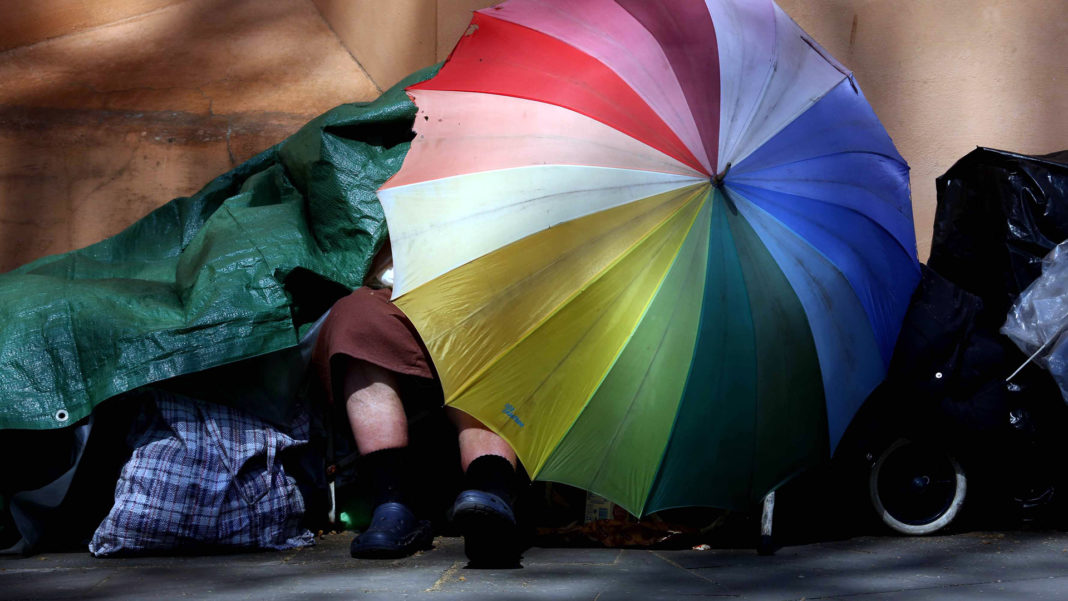Last month Taoiseach Micheál Martin committed to addressing a spate of sexual assaults against homeless people on the streets of Cork. The woman who secured that commitment, Lavinia Kerwick, is someone who has already changed Ireland for the better.
I’m humbled that Lavinia Kerwick reads this column.
If you’re too young to know the name, or if the passage of time has dimmed your recollection, Lavinia Kerwick was the first Irish rape survivor to waive their right to anonymity. She is the reason we now have victim impact statements in court cases, and the reason the Director of Public Prosecutions (DPP) can now appeal undue leniency in sentences. She is someone who has had a profound and positive effect on the lives of countless Irish people.
Lavinia Kerwick was 18-years-old on the night of New Year’s Eve, 1991, when she went to a disco in Kilkenny with her mother and her mother’s friends. Lavinia was a restaurant worker and childminder, and she had been a good student and had won trophies for karate.
Lavinia had been dating William Conry for six months. William had left school at 15, and he would later be diagnosed as dyslexic. He was a loner, and although his drinking worried Lavinia, and despite her mother disapproving strongly of him, she stuck with him, but she did not intend to lose her virginity to him. Lavinia would later say “The important thing was to be able to say you had a boyfriend”.
Lavinia was delighted that night to be wearing her new Christmas outfit, which consisted of a black top, a black velvet mini-dress, and a red jacket. Later, Lavinia would worry that her outfit was to blame for what happened.

Around 11.30pm Lavinia met William by the toilets. She initially refused to dance with him, as she thought he wasn’t sober, but she relented and they slow-danced to Bryan Adams’ “Everything I Do”, ringing in the New Year together. They left the nightclub around 2am, and went to the grounds of Kilkenny Castle, where they lay together on the ground on William’s jacket, talking for 45 minutes or so.
William became violent then, attacking and raping Lavinia, leaving her with severe and life-changing injuries.
When Lavinia went to the Gardai, she says she came under “horrific pressure” within her local community to withdraw her complaint, because, she was told, she was “ruining his life”.
Seven months after the rape, in 1992, when the sentencing of Conry was adjourned for a year – after which he would be given what turned out to be a suspended sentence – Lavinia was “absolutely inconsolable” when her rapist walked essentially free from the Central Criminal Court.
On the radio, she heard Gerry Ryan say something along the lines of, “Well, if it was me, he wouldn’t have walked out of that court”.
She later told the Irish Times: “And I just thought, ‘Oh God, now, this could be the man’, because there was nowhere to go. You couldn’t appeal it. And at 19 I knew coming out that something had gone wrong in that court. I absolutely knew that something had gone very wrong.”
Lavinia contacted The Gerry Ryan Show on RTÉ 2fm and – becoming the first Irish rape survivor to waive their right to anonymity – spoke about the ordeal she had suffered.
Going on air after the 10am news, Lavinia was asked by Ryan what name she wanted to be called. She replied “Lavinia”, and she outlined both the rape and the subsequent traumatic court case. She spoke of her anguish at the court’s decision: “I just couldn’t believe it. He might as well have raped me again yesterday.”
By the 11am news, Lavinia was the lead story.
Lavinia says she and Gerry Ryan were both deemed to be in contempt of court. Ryan was fined, and could well have lost his job, and Lavinia was threatened with jail. Which, she notes, is more than her rapist ever suffered. She says she will never forget Gerry Ryan’s kindness, and they remained friends until his death.
The public’s outraged reaction to the interview led to the then minister for justice, Pádraig Flynn, beginning the process to change legislation, allowing victim impact statements to be made in court, and giving the DPP the power to appeal leniency of sentences. Those changes have since had a beneficial effect upon the lives of countless people.
The rape and its consequences nearly killed Lavinia, her resultant anorexia causing her to drop down to the almost fatal weight of just two-and-a-half stone, and even now she says she still struggles with self-blame.
All these years later, Lavinia calls her teenage son her “miracle child”, because she had been told that – as a result of the rape – she would never be able to have children.
Last month Lavinia read in this column a report about homeless people being sexually assaulted and raped on the streets of Cork. Cork Penny Dinners co-ordinator Catriona Twomey had related how she had recently saved a homeless woman from being raped, and how she had also witnessed a sexual assault on another homeless woman.
In both incidents, the attackers were homeless men known to their victims, but Catriona stressed that “the vast majority of homeless men are fabulous people, and in fact many homeless men have themselves been sexually assaulted.”
On reading the piece, Lavinia was horrified and decided she had to do something.
As I later reported in the Irish Examiner, she called on Taoiseach Micheál Martin to meet with Catriona and Cork Sexual Violence Centre founder Mary Crilly.
“I think the Taoiseach should come to Penny Dinners and – on behalf of us all – thank Catriona Twomey for putting her own safety at risk to save that poor homeless lady.”
Lavinia was at pains to ensure that I report her concern that homeless rape victims may not have adequate access to medical care for their internal and external injuries.
“I think the Taoiseach should ask Catriona and Mary Crilly what the Government can do to protect homeless people, because whether you have a roof over your head or not, rape is rape, and the people in doorways are human beings, and they could be anyone of us.
“I know he’s very busy, but I believe Micheál Martin is a compassionate man, and I believe he cares about homeless people, and I’m sure he would take an hour to meet Catriona and Mary.”
Describing Catriona Twomey and Mary Crilly as “unsung heroes”, she said: “I know that they don’t look for thanks, but that said, these two remarkable women are real, honest-to-God heroes and I think the Taoiseach should come down and show his support.”
At the time, Catriona Twomey told me:
“I think the time is right for Micheál Martin to stand with the most vulnerable people in our society, and knowing him I would be confident that he will do the right thing.”
Mary Crilly said she would welcome a meeting with the Taoiseach as “it would highlight not just the lives of homeless women but the prevalence of women who are homeless. I think there is a belief that it is only men who are homeless which isn’t the case.”
I rang the Taoiseach’s office, and a Government spokesperson told me: “The Taoiseach has the greatest of respect for Catriona Twomey and Mary Crilly and the work they do, and is open to meeting with both women to discuss the homelessness situation and the impact it is having on vulnerable people.”
As it happens, I was on Patrick Street this Monday night with Catriona Twomey as she secured accommodation for a family sleeping rough. The Gardai were there, six young officers, and they could not have been kinder or gentler in dealing with vulnerable people in a fraught situation. The Penny Dinners Knight Riders supplied hot tea to a young lad for his mam, while I spelled out “GARDA” on the bonnet of a car with a boisterous little girl who then took a shine to the Garda logo, shouting repeatedly “Garda Badge!”
In the middle of it all, Catriona’s phone rang. It was the Taoiseach.
She said she’d ring him back. She will, and that contact will happen, in part at least, thanks to Lavinia Kerwick.
Sexual Violence Centre Cork: 1800 496496 Text: 087 1533393
Dublin Rape Crisis Centre: 1800 778888








